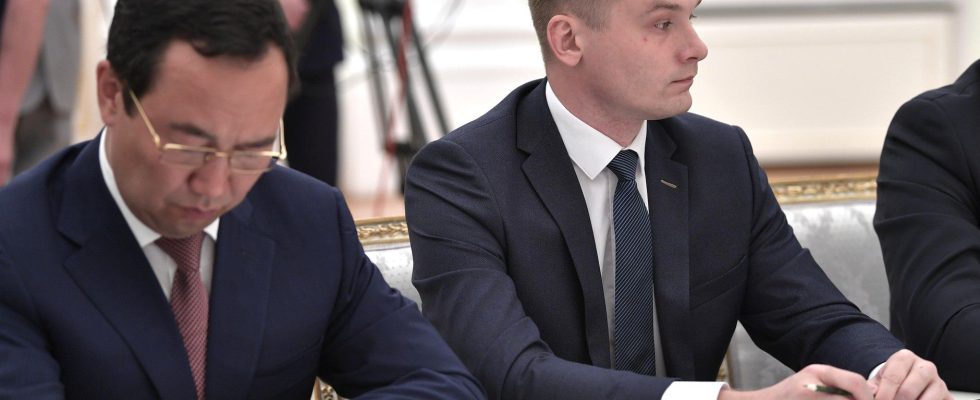Unsurprisingly, in Moscow, the emblematic mayor of the capital, Sergei Sobyanin, was re-elected this weekend, like practically all the candidates from the presidential party “United Russia” who ran in the local elections. They concerned 16 regional parliaments, 12 municipal parliaments and 21 regional governorships across the country. This was the first election in Russia and in the newly annexed Ukrainian territories since the invasion of Ukraine in 2022: it took place without suspense or particular issues. And hardly excited the crowds.
With one exception. In Khakassia, a Siberian region of less than 200,000 inhabitants, it was the candidate Valentin Konovalov who was re-elected governor hands down in his region, with 63% of the votes. The winner is affiliated with the Communist Party, an organization that is certainly particularly accommodating with the Kremlin. But this is the only region where “there were real elections where it was possible to choose, with administrative and media resources distributed between the two camps, which is really rare in our time”, specifies the observer Stanislav Andreychuk, member of the Golos organization responsible for independently monitoring elections in Russia, and declared a “foreign agent” in 2021.
Already in 2018, Valentin Konovalov, aged only 30, took advantage of the unpopularity of outgoing governor Viktor Zimin, a member of the presidential party, to win with 40% of the votes in the second round, to everyone’s surprise… and there understood his.
Failure of the Kremlin
Five years later, the victory of the communist candidate still seems to give the Kremlin a hard time. His opponent, Sergei Sokol (United Russia), parachuted into Khakassia for the election, is presented as a veteran of the current war in Ukraine, experience on which the candidate intended to capitalize. But according to several observers, non-public polls showed that his popularity rating decreased as the election date approached, while that of Valentin Konovalov continued to increase. A few days before the election, Sergei Sokol declared himself ill and abandoned the election.
Was he exfiltrated to avoid the humiliation of defeat at the polls, or did he explode in flight? Whatever the case, it is a bitter failure for the Kremlin, which is accustomed to perfectly “managed” elections, to use the term used by Russian political scientists. A term which shows to what extent, over the years, the polls have become a simple managerial mission, entrusted to what we call the “political bloc” of the presidential administration. A few months before the deadlines, the “curators” of the elections receive quantified objectives to achieve: such quantity of votes for United Russia, with such rate of participation.
Elections formatted by the presidential administration
“There is a full-time employee dedicated to each region, and teams dedicated to each election,” explains Russian political scientist Andreï Pertsev, an expert on the workings of the Kremlin. In the event of difficulties, we can increase efforts in a given region, by devoting a higher-level official to it.” This team will both lead a classic electoral campaign for the candidate of the ruling party, and put the “administrative resource” to its benefit, in other words mobilize the influence of the state apparatus to its advantage. This means, for example, ensuring the cooperation of local media, but also, explains Andreï Pertsev, “mobilizing supporters of power. Ensuring that employees of the administration, all adjoining structures and businesses will be forced by their employer to vote. This is also electoral fraud, especially in rural areas. The electoral commissions are, in fact, subordinate to them. And they can always ask for help from the siloviki”, the men of the police and the secret services, to get rid of a troublesome adversary.
This is more or less what happened to Sergei Fourgal. Governor of the Khabarovsk region, elected in 2018 against the United Russia candidate, then dismissed two years later, arrested for murder, tried in Moscow despite massive demonstrations of support in his city, and sentenced last February to 22 years in prison.
A relative threat to Putin
Why, in the case of Khakassia, did this formidable machine then fail for the second time in a row? “They chose a bad candidate,” considers Andreï Pertsev. “A civil servant parachuted into the region, who had a failed campaign and was in conflict with the local political elites.”
Elected again for five years this year, “the Kremlin found no reason to dismiss Valentin Konovalov,” explains Stanislav Andreytchouk. “During his mandate, he managed to establish a relationship of trust with local elites, both economic and political.”
“Valentin Konovalov is what we call a technical candidate, someone who is fairly consensual and does not pose a problem for Putin,” considers political scientist Tatiana Stanovaïa, for whom the Kremlin could accept the communist’s victory. Other experts, however, are not of this opinion: “They will first try to get rid of him gently,” says Andreï Pertsev. “Perhaps by having him elected to Parliament or appointed to the Senate.” A way for the presidential administration to repair its failure… and maintain control.
